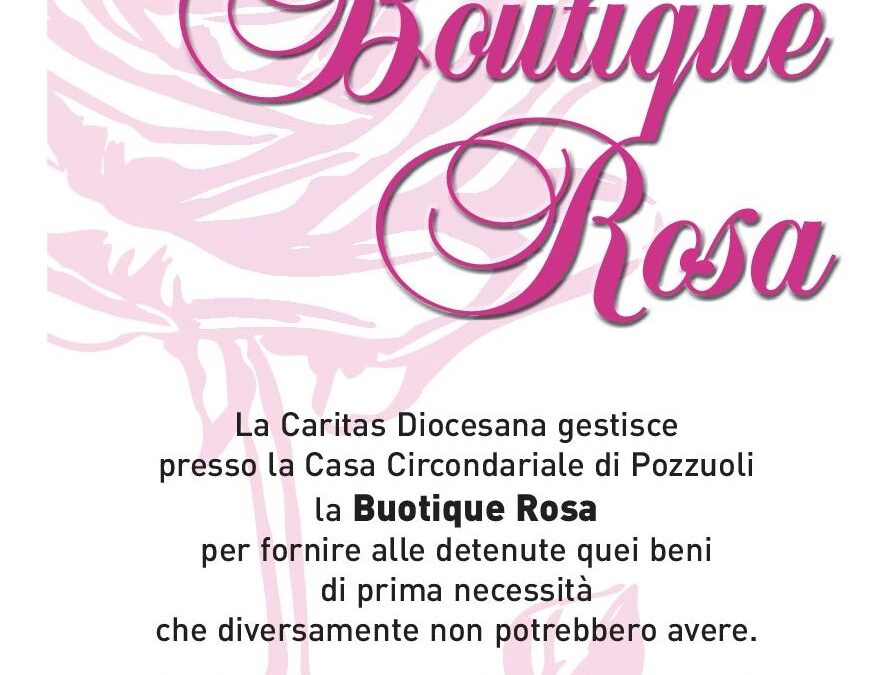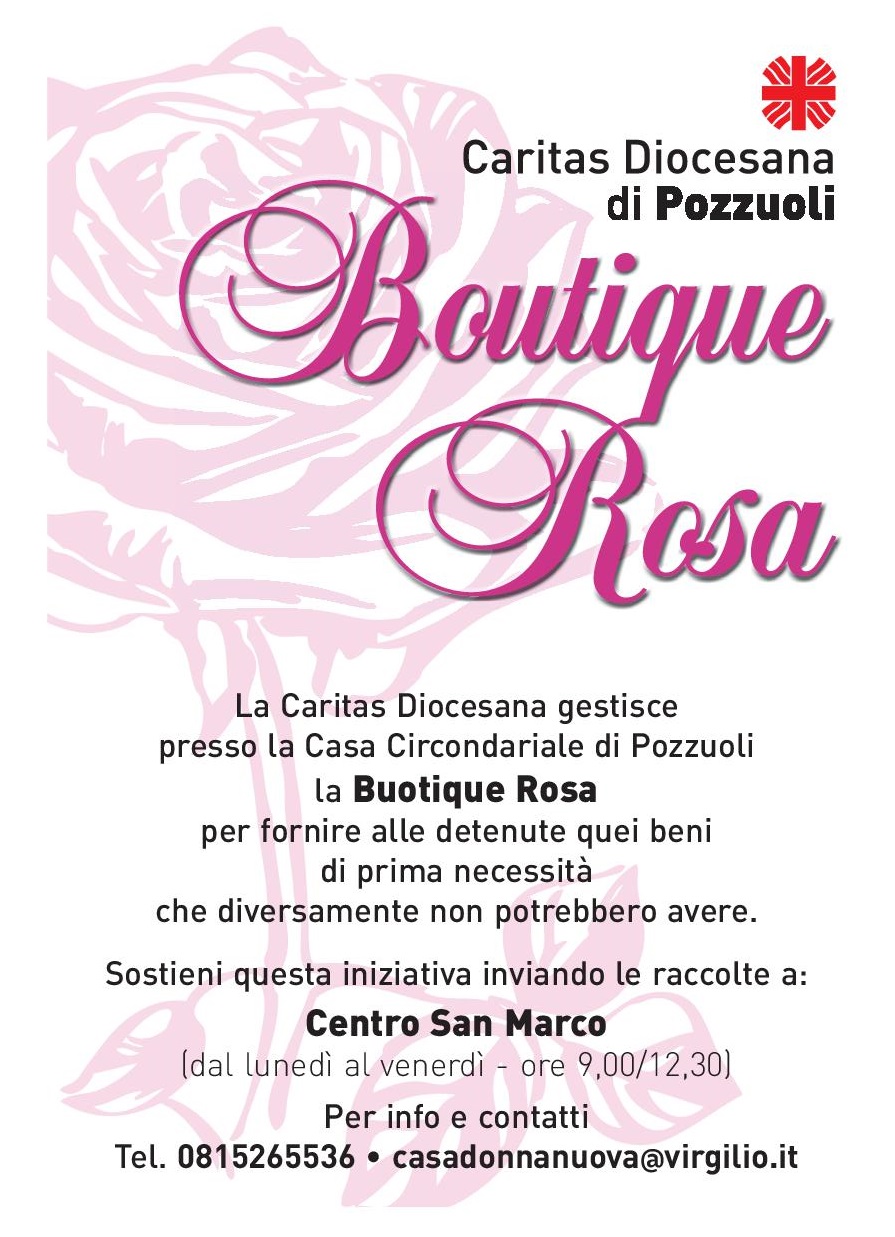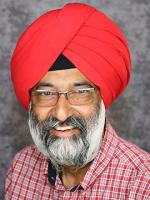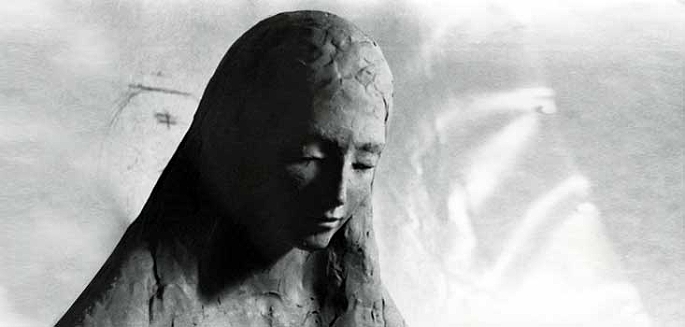
Sep 16, 2016 | Non categorizzato
 In 2011, Maria Clara who had just retired, transferred her services to the women’s jail of Pozzuoli (Naples-Italy), a huge jail, and one of the most overcrowded in Italy. Struck by the cries of pain that reached her ears from the barred windows, she discussed it with her friends of the local Focolare community and 25 of them (boys, girls, families…) decided to respond to the appeal. In collaboration with the diocesan Caritas and other Movements, the group thus immersed themselves into that suffering humanity behind bars. It was not an easy experience, but one that led to refine, in the name of mercy, every gesture and word, so as to be really that presence of love the world awaits. Each one became more aware that they did not go there to “absolve,” judge, or just to carry out social work, but only to give love, focusing on the reconstruction of the person. And probably because of this attitude, very soon they saw the positive aspects emerge in each person. “When I get out of here I want to be a new person,” one of them confided. And another said: “Now I know what it means to be a Christian, and I want to live by the Gospel, loving my cellmates, even if they make life impossible.” Still another said: “I understood that the real help comes from Jesus in the Eucharist and not from the “power–wielding people of the world.” This flow of light and grace was not earned with a magic wand. It was the fruit of continual attention to the needs of the inmates, helping them to rediscover their own dignity through living the Gospel. It consisted in going with them to Sunday Mass, enlivening it with songs, and placing oneself at their disposal to renovate the chapel. It meant asking and obtaining the permit from the jail administration to organise a series of workshops on health education, cooking, yoga, sewing courses, etc., in the Family Home “Donna Nuova” which hosts women under alternative detention regimes. One of the things the inmates needed – not expressed but which immediately came to the fore – was self-care. This inspired the establishment of the “Pink boutique,” a free facility within the jail, with pink walls, curtains and coloured shelves in contrast with the greyness of the cells. It is a point where the inmates, often abandoned or far from their own families, can weekly receive products for their personal hygiene, clothes, underwear, etc., and in short, all that serves to boost their own self-esteem. In the meantime, they could talk to one another or to the wardens and listen to each other’s difficulties, to comfort one another in their regret for not being able to care for their children at home, thus building really close relationships. It was also the occasion to share big and small joys, such as a reduced prison sentence, an unexpected visit, and the steps taken in starting again. All of them are from different ethnic groups and cultures, and belong to various Christian churches and religions. “I remember an Orthodox woman,” Maria Clara recounts, “who during the Unity of Christians Prayer Week, wanted to contribute with a prayer-song. Crying, she told me that she was offering the immense suffering of her prison term for the unity of the churches. We then went to Naples to meet her husband and five children, with some aid for them. We share this experience with some people belonging to Christian churches of various denominations, with which an ecumenical dialogue was opened in the diocese. This was exactly what they were waiting for! Now also four evangelical sisters have started working with us. Thanks to them, inmates of various churches have established really close relationships that at times, continue even when they leave the jail.”
In 2011, Maria Clara who had just retired, transferred her services to the women’s jail of Pozzuoli (Naples-Italy), a huge jail, and one of the most overcrowded in Italy. Struck by the cries of pain that reached her ears from the barred windows, she discussed it with her friends of the local Focolare community and 25 of them (boys, girls, families…) decided to respond to the appeal. In collaboration with the diocesan Caritas and other Movements, the group thus immersed themselves into that suffering humanity behind bars. It was not an easy experience, but one that led to refine, in the name of mercy, every gesture and word, so as to be really that presence of love the world awaits. Each one became more aware that they did not go there to “absolve,” judge, or just to carry out social work, but only to give love, focusing on the reconstruction of the person. And probably because of this attitude, very soon they saw the positive aspects emerge in each person. “When I get out of here I want to be a new person,” one of them confided. And another said: “Now I know what it means to be a Christian, and I want to live by the Gospel, loving my cellmates, even if they make life impossible.” Still another said: “I understood that the real help comes from Jesus in the Eucharist and not from the “power–wielding people of the world.” This flow of light and grace was not earned with a magic wand. It was the fruit of continual attention to the needs of the inmates, helping them to rediscover their own dignity through living the Gospel. It consisted in going with them to Sunday Mass, enlivening it with songs, and placing oneself at their disposal to renovate the chapel. It meant asking and obtaining the permit from the jail administration to organise a series of workshops on health education, cooking, yoga, sewing courses, etc., in the Family Home “Donna Nuova” which hosts women under alternative detention regimes. One of the things the inmates needed – not expressed but which immediately came to the fore – was self-care. This inspired the establishment of the “Pink boutique,” a free facility within the jail, with pink walls, curtains and coloured shelves in contrast with the greyness of the cells. It is a point where the inmates, often abandoned or far from their own families, can weekly receive products for their personal hygiene, clothes, underwear, etc., and in short, all that serves to boost their own self-esteem. In the meantime, they could talk to one another or to the wardens and listen to each other’s difficulties, to comfort one another in their regret for not being able to care for their children at home, thus building really close relationships. It was also the occasion to share big and small joys, such as a reduced prison sentence, an unexpected visit, and the steps taken in starting again. All of them are from different ethnic groups and cultures, and belong to various Christian churches and religions. “I remember an Orthodox woman,” Maria Clara recounts, “who during the Unity of Christians Prayer Week, wanted to contribute with a prayer-song. Crying, she told me that she was offering the immense suffering of her prison term for the unity of the churches. We then went to Naples to meet her husband and five children, with some aid for them. We share this experience with some people belonging to Christian churches of various denominations, with which an ecumenical dialogue was opened in the diocese. This was exactly what they were waiting for! Now also four evangelical sisters have started working with us. Thanks to them, inmates of various churches have established really close relationships that at times, continue even when they leave the jail.”
Sep 15, 2016 | Non categorizzato
https://www.youtube.com/watch?v=8Asjy1-9mxI After We Are Coming To You (1972), Wherever You Are (1982), Se siamo uniti (1987) and – with Gen Verde – Come fuoco vivo (1998) and Messa della Concordia (2004), Gen Rosso releases a new DVD for the Year of Mercy: Voce del mio canto. We are led into the music by Lito Amuchastegui, from Argentina, who has been with Gen Rosso for 20 years. He composed most of the songs that led to the composition of a complete Mass. He was helped by Beni Enderle for the music, Valerio Lode Ciprì for the lyrics and Emanuele Chirco for the final mixing. Lito has loved music all his life and began singing in public at the age of five. With Gen Rosso he worked as a sound engineer. Voce del mio canto (Voice of my song) is his legacy to the group, as he returns to the place he was born in Córdoba, Argentina. “Writing a Mass is no joke,” he declares. “It requires awareness: you’re talking about who God is for you. In front of every piece I had to place myself in front of Him and ask: are You truly the voice of my song? Are You my only treasure? When there are crosses, are You my Simon of Cyrene? Il Cielo è con noi is one my favourite pieces. It was inspired by a writing of Chiara Lubich in which she says that Heaven has been poured on us, Heaven in all its infiniteness: “you were born among us/ you brought with you the fragrance of Heaven/ you died for us, you are pure love/ you are Divine love. It asks about God not on the theological or historical level, but on the personal level: Who is God for me? So, Voce del mio canto is most of all about an experience: prayer, the joy of experiencing that you are loved by God…. But where did the idea of a sung Mass come from? “The reason behind it was the desire to make music. I took guitar along on vacation and wrote Quelli che amono te (Those that love you) in one sitting. Then I put it to music and shared it with the people who were with me and they liked it. Then I kept going and ended up with eleven pieces, plus two more that we already had. Why a Mass? Perhaps it shows that God was saying to me: ‘I want to help you to give more glory to me.’ I set off from there. What is the story behind each of the songs? Lito revealed that he had put a bit of his own roots into each piece: “One song talks about Pane della Madre Terra (Bread of Mother Earth). We South Americans have strong feelings towards Mother Earth which stem from indigenous tradition. Moreover, I was in Uruguay where I got to know about the ‘candombe’ which has Afro-American features, and I wanted to leave a mark of the experience I had had with the Uruguayan musicians in the Santo. They are a people of singing and praising God, a people of the streets, with tambourines like King David who sang and danced in front of the Ark of the Covenant. Then there was Niña de Nazareth (Girl from Nazareth), a song I wrote before joining Gen Rosso but was never able to put it to music. I worked on it with Beni Henderle, and we came out with the song. Other pieces were a bit more difficult: for the Kyrie Eleison, for example, I had come with 7 different versions. I was trying to convey the experience that God loves us; His mercy is also born from being Love. The rest is relative; whereas, for me, this is like a splinter in my mind.” What suggestions could you give to those who want to play these songs? “I would suggest to them that these songs aren’t meant to be sung, but lived. I would wish to anyone who would like to use them – in a group, a parish, a choir – that they would be able to have this experience of God: to “enter” the songs. I would wish that they could be able to enter the songs with their souls, so that the correct interpretation of each piece would come out.” Song List:
- Verso di te (Towards You)
- Kyrie Eleison
- Gloria
- Loda il Signore anima mia (Praise the Lord, my soul)
- Alleluia
- Quelli che amano te (Those that love you)
- Santo, Candombe rhythm (Holy, holy, holy)
- Agnello di Dio (Lamb of God)
- Il cielo è con noi (Heaven is here with us)
- Voce del mio canto (Voice of my song)
- Come un fiume (Like a river)
- Ave Maria
- Niña de Nazareth.
Complete texts and musical scores are included with the CD Where to buy Voce del mio canto CD

Sep 13, 2016 | Non categorizzato

Dr Tarunjit Singh Butalia
Sep 13, 2016 | Non categorizzato
Monday and Tuesday 19th and 20th of September 2016: different arrivals in Rome Wednesday 21st September 2016: Participation in an Audience with the Holy Father – Pope Francis in the Vatican – after the Audience, visit of the Tomb of Saint Peter the Apostles and the Popes – Visits of some selected holy sites of Rome Thursday 22nd September 2016: Touristic visit of Rome – Catacombs, Colosseum and Basilicas of Rome. Departure to Loppiano (Florence – first Focolare Citadel in the World created by Chiara Lubich) night at Loppiano. Friday 23rd of September 2016: Visit of Loppiano and meeting with the inhabitants of Loppiano Saturday 24th of September 2016: Departure from Loppiano to Trento – Chiara’s native town and citadel. A stop in Florence town – touristic visit. Night at Trento Sunday 25th of September 2016: Visit of Trent and inhabitants, Institutions, Municipality (Mayor) and Bishop of Trent. Monday 26th September 2016: departure from Trento to Rome – a touristic stop at Venice. Night in Rome – Castel Gandolfo . Focolare International Mariapolis Centre. Tuesday 27th September 2016: visit to the tomb of Mafua Ndem Chiara Lubich, at the Focolare Headquarters in Rocca di Papa. A meeting with the Centre of the Focolare Movement. Wednesday 28th September 2016: Departure and end of the Pilgrimage.

Sep 13, 2016 | Non categorizzato
 The fruits of the Word “For years now, three of us have been asking the new parish priest to talk more about the Word of God. So he arranged for us to hold a meeting before Mass every Sunday. The more we strived to put the Word into practice, the more people kept asking to participate. In a few months, we formed a big group. There was a strong family relationship among the frequent participants, and in the parish the atmosphere started to change. Now we were no longer satisfied only with prayer and individual efforts to be good Christians, but were involved in a journey where each one tried to reach the goal of sanctity with the others. We strongly felt the presence of Jesus at our side and in our midst, and this started to show its effects: besides the joyful discovery of a new image of the Church, we began to feel the need to also share material things with the less fortunate, and support the disadvantaged families, disoriented youth, and people who needed to rediscover God’s love. And this was not only within the framework of the parish.” (Lucio – Italy) The forgotten Christmas bonus “I was at the market when I remembered that my parents didn’t have any money, so I did the shopping also for them. On my way home, I noticed a girl crying in the street: she was hungry and her family – she told me – had nothing to eat. After consulting my husband, Antonio, we decided to bring to that family half of our monthly groceries. The next day our neighbour’s daughter came to confide that her father had gone away to look for work and no longer returned. Also they, with many children, had nothing to eat. I said to myself: “Enough of all this, we have already done our part!” But when Antonio reminded me that we still had not given what was necessary, once again we divided the remainder of our supplies. By then there was no money left for the shopping, but every day we received some help from someone. At the end of the month my salary was double. It was not a mistake: I had forgotten about my Christmas bonus.” (B. P. – Brazil) Tradition with a new heart “As a tradition in our society, particularly in the villages, the men do not help in the housework, and the women go to work even when they are sick: they do not consider themselves as victims and neither do the men feel cruel. It was so also in my house. If my wife was doing some chore and was reading a book or watching TV, it never occurred to me to get up if our son was crying: it was her task. When with the help of my Christian friends, I realized that the others had the right to receive my love and help, I felt I had to start especially at home. One day, when my wife who was preparing breakfast had to tend to the baby, I set the table for her. When she returned, she was surprised but did not make any remarks. But when I ironed my own shirt to go to the office, it was simply too much for her…. So I told her about the beauty of being the first to love and doing to others what we want others to do to us. Now there is more harmony in the family.” (W.U. H. – Pakistan)
The fruits of the Word “For years now, three of us have been asking the new parish priest to talk more about the Word of God. So he arranged for us to hold a meeting before Mass every Sunday. The more we strived to put the Word into practice, the more people kept asking to participate. In a few months, we formed a big group. There was a strong family relationship among the frequent participants, and in the parish the atmosphere started to change. Now we were no longer satisfied only with prayer and individual efforts to be good Christians, but were involved in a journey where each one tried to reach the goal of sanctity with the others. We strongly felt the presence of Jesus at our side and in our midst, and this started to show its effects: besides the joyful discovery of a new image of the Church, we began to feel the need to also share material things with the less fortunate, and support the disadvantaged families, disoriented youth, and people who needed to rediscover God’s love. And this was not only within the framework of the parish.” (Lucio – Italy) The forgotten Christmas bonus “I was at the market when I remembered that my parents didn’t have any money, so I did the shopping also for them. On my way home, I noticed a girl crying in the street: she was hungry and her family – she told me – had nothing to eat. After consulting my husband, Antonio, we decided to bring to that family half of our monthly groceries. The next day our neighbour’s daughter came to confide that her father had gone away to look for work and no longer returned. Also they, with many children, had nothing to eat. I said to myself: “Enough of all this, we have already done our part!” But when Antonio reminded me that we still had not given what was necessary, once again we divided the remainder of our supplies. By then there was no money left for the shopping, but every day we received some help from someone. At the end of the month my salary was double. It was not a mistake: I had forgotten about my Christmas bonus.” (B. P. – Brazil) Tradition with a new heart “As a tradition in our society, particularly in the villages, the men do not help in the housework, and the women go to work even when they are sick: they do not consider themselves as victims and neither do the men feel cruel. It was so also in my house. If my wife was doing some chore and was reading a book or watching TV, it never occurred to me to get up if our son was crying: it was her task. When with the help of my Christian friends, I realized that the others had the right to receive my love and help, I felt I had to start especially at home. One day, when my wife who was preparing breakfast had to tend to the baby, I set the table for her. When she returned, she was surprised but did not make any remarks. But when I ironed my own shirt to go to the office, it was simply too much for her…. So I told her about the beauty of being the first to love and doing to others what we want others to do to us. Now there is more harmony in the family.” (W.U. H. – Pakistan)

Sep 11, 2016 | Non categorizzato

Ave Cerquetti, ‘Bella Accoglienza’ – Rome, 1961

 In 2011, Maria Clara who had just retired, transferred her services to the women’s jail of Pozzuoli (Naples-Italy), a huge jail, and one of the most overcrowded in Italy. Struck by the cries of pain that reached her ears from the barred windows, she discussed it with her friends of the local Focolare community and 25 of them (boys, girls, families…) decided to respond to the appeal. In collaboration with the diocesan Caritas and other Movements, the group thus immersed themselves into that suffering humanity behind bars. It was not an easy experience, but one that led to refine, in the name of mercy, every gesture and word, so as to be really that presence of love the world awaits. Each one became more aware that they did not go there to “absolve,” judge, or just to carry out social work, but only to give love, focusing on the reconstruction of the person. And probably because of this attitude, very soon they saw the positive aspects emerge in each person. “When I get out of here I want to be a new person,” one of them confided. And another said: “Now I know what it means to be a Christian, and I want to live by the Gospel, loving my cellmates, even if they make life impossible.” Still another said: “I understood that the real help comes from Jesus in the Eucharist and not from the “power–wielding people of the world.” This flow of light and grace was not earned with a magic wand. It was the fruit of continual attention to the needs of the inmates, helping them to rediscover their own dignity through living the Gospel. It consisted in going with them to Sunday Mass, enlivening it with songs, and placing oneself at their disposal to renovate the chapel. It meant asking and obtaining the permit from the jail administration to organise a series of workshops on health education, cooking, yoga, sewing courses, etc., in the Family Home “Donna Nuova” which hosts women under alternative detention regimes. One of the things the inmates needed – not expressed but which immediately came to the fore – was self-care. This inspired the establishment of the “Pink boutique,” a free facility within the jail, with pink walls, curtains and coloured shelves in contrast with the greyness of the cells. It is a point where the inmates, often abandoned or far from their own families, can weekly receive products for their personal hygiene, clothes, underwear, etc., and in short, all that serves to boost their own self-esteem. In the meantime, they could talk to one another or to the wardens and listen to each other’s difficulties, to comfort one another in their regret for not being able to care for their children at home, thus building really close relationships. It was also the occasion to share big and small joys, such as a reduced prison sentence, an unexpected visit, and the steps taken in starting again. All of them are from different ethnic groups and cultures, and belong to various Christian churches and religions. “I remember an Orthodox woman,” Maria Clara recounts, “who during the Unity of Christians Prayer Week, wanted to contribute with a prayer-song. Crying, she told me that she was offering the immense suffering of her prison term for the unity of the churches. We then went to Naples to meet her husband and five children, with some aid for them. We share this experience with some people belonging to Christian churches of various denominations, with which an ecumenical dialogue was opened in the diocese. This was exactly what they were waiting for! Now also four evangelical sisters have started working with us. Thanks to them, inmates of various churches have established really close relationships that at times, continue even when they leave the jail.”
In 2011, Maria Clara who had just retired, transferred her services to the women’s jail of Pozzuoli (Naples-Italy), a huge jail, and one of the most overcrowded in Italy. Struck by the cries of pain that reached her ears from the barred windows, she discussed it with her friends of the local Focolare community and 25 of them (boys, girls, families…) decided to respond to the appeal. In collaboration with the diocesan Caritas and other Movements, the group thus immersed themselves into that suffering humanity behind bars. It was not an easy experience, but one that led to refine, in the name of mercy, every gesture and word, so as to be really that presence of love the world awaits. Each one became more aware that they did not go there to “absolve,” judge, or just to carry out social work, but only to give love, focusing on the reconstruction of the person. And probably because of this attitude, very soon they saw the positive aspects emerge in each person. “When I get out of here I want to be a new person,” one of them confided. And another said: “Now I know what it means to be a Christian, and I want to live by the Gospel, loving my cellmates, even if they make life impossible.” Still another said: “I understood that the real help comes from Jesus in the Eucharist and not from the “power–wielding people of the world.” This flow of light and grace was not earned with a magic wand. It was the fruit of continual attention to the needs of the inmates, helping them to rediscover their own dignity through living the Gospel. It consisted in going with them to Sunday Mass, enlivening it with songs, and placing oneself at their disposal to renovate the chapel. It meant asking and obtaining the permit from the jail administration to organise a series of workshops on health education, cooking, yoga, sewing courses, etc., in the Family Home “Donna Nuova” which hosts women under alternative detention regimes. One of the things the inmates needed – not expressed but which immediately came to the fore – was self-care. This inspired the establishment of the “Pink boutique,” a free facility within the jail, with pink walls, curtains and coloured shelves in contrast with the greyness of the cells. It is a point where the inmates, often abandoned or far from their own families, can weekly receive products for their personal hygiene, clothes, underwear, etc., and in short, all that serves to boost their own self-esteem. In the meantime, they could talk to one another or to the wardens and listen to each other’s difficulties, to comfort one another in their regret for not being able to care for their children at home, thus building really close relationships. It was also the occasion to share big and small joys, such as a reduced prison sentence, an unexpected visit, and the steps taken in starting again. All of them are from different ethnic groups and cultures, and belong to various Christian churches and religions. “I remember an Orthodox woman,” Maria Clara recounts, “who during the Unity of Christians Prayer Week, wanted to contribute with a prayer-song. Crying, she told me that she was offering the immense suffering of her prison term for the unity of the churches. We then went to Naples to meet her husband and five children, with some aid for them. We share this experience with some people belonging to Christian churches of various denominations, with which an ecumenical dialogue was opened in the diocese. This was exactly what they were waiting for! Now also four evangelical sisters have started working with us. Thanks to them, inmates of various churches have established really close relationships that at times, continue even when they leave the jail.”


